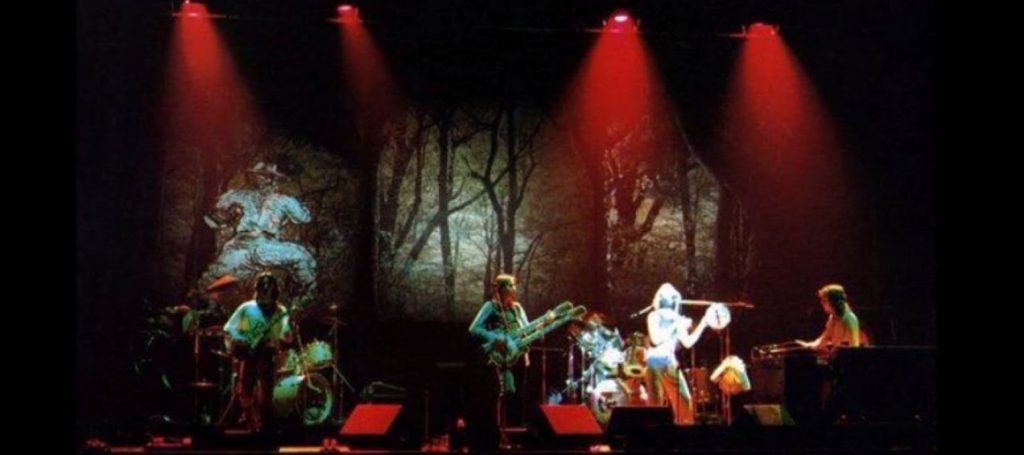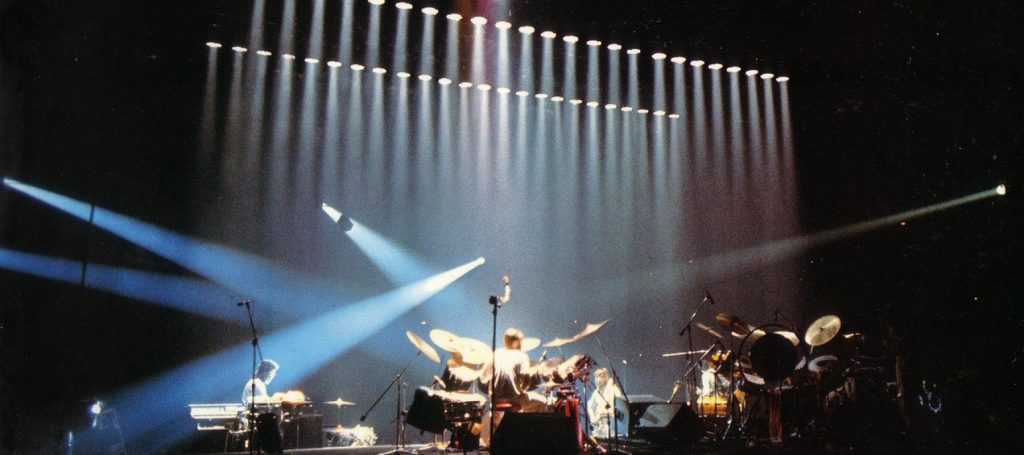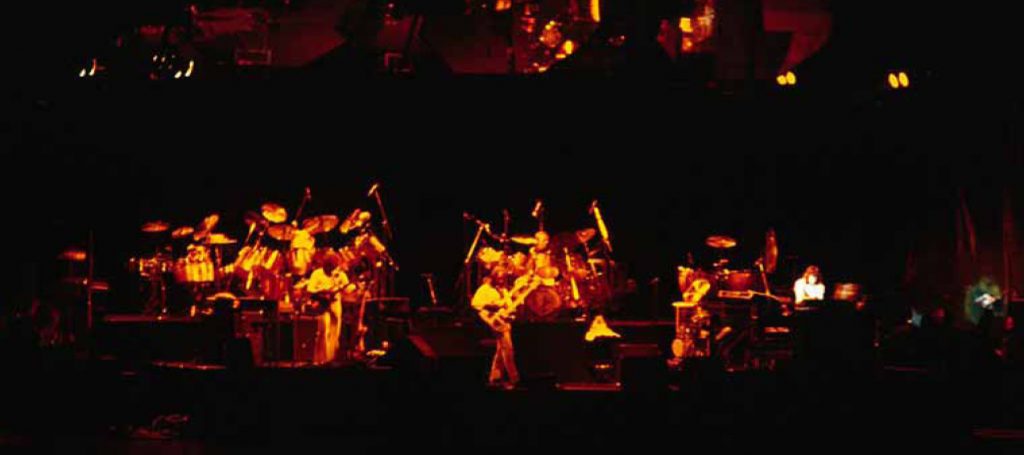Montreal 1974: Genesis Bootlegs

It is 1974. In Britain and parts of Europe, notably Italy — though not yet North America — Genesis have broken through to the big time: top-ten albums, decent-sized venues such as the London Rainbow, front-cover status in Melody Maker. This bootleg — an FM radio broadcast — captures the band in Montreal on 21 April. For many longtime fans, this is ‘classic’ Genesis: the Tony Banks / Phil Collins / Peter Gabriel / Steve Hackett / Mike Rutherford line-up. It is the era of the Mellotron and twelve-string guitars, of fox heads and old-man masks, of hermaphrodites and hogweed.
As on the previous tour, Watcher of the Skies opens proceedings — the eerie, doom-laden sound of the Mellotron familiar to fans from the Foxtrot and Genesis Live albums, a foretaste of the drama and (imagined) theatrics to come. Prog rock à la Genesis delights in long, complex pieces with repeated changes of mood and tempo. The set-list draws from three classic albums of the genre — Nursery Cryme, Foxtrot and the then-current Selling England by the Pound:
Watcher of the Skies / Dancing with the Moonlit Knight / The Cinema Show / I Know What I Like / Firth of Fifth / The Musical Box / Horizons / The Battle of Epping Forest / Supper’s Ready
The first ‘proper’ Genesis album, Trespass, is here unrepresented. The Knife, the standout Trespass track, was only very occasionally played on the tour as an encore, it seems. Indeed, on most nights they appear to have ditched an encore altogether.
Lacking the studio polish of the official releases to balance the sound and smooth away the rough edges, several passages here sound pleasingly urgent and aggressive, and it is interesting to compare the songs that also feature on the official Genesis Live album, released a year or so earlier. The bass (or bass pedal) during the Watcher of the Skies opening is more apparent, for example, adding to the sense of drama and foreboding, and during the heavier Musical Box sections it is as if Steve is battling to control his volume pedal.
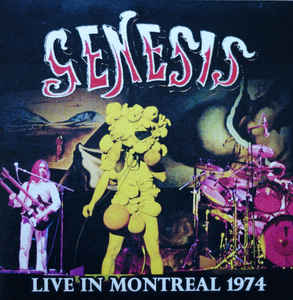
This recording is by no means perfect — radio interference leaks into the sound during quieter passages — but one of the pleasures of bootlegs for fans is the chance to hear their favourite bands in the raw, as it were: the mistakes and mishaps on stage, the experiments that didn’t work and were subsequently dropped, the early performances of songs before further reworking.
Firth of Fifth is a case in point. An undoubted Genesis masterpiece, it is hard to believe (see the Chapter and Verse book) that it almost wasn’t recorded. Here it is played in full, complete with Tony’s opening solo, dropped for subsequent tours. Played on keyboard rather than grand piano, it lacks the majesty of the original recording — in other words, it’s easy to see why it was dropped in favour of the powerful “The path is clear…” opening. Steve’s playing also seems at times to be a little less fluent than on the later Seconds Out version, for example.
Other than the opening and closing drone sound, I Know What I Like is less drawn-out than in later years — and better for it. Bootlegs capture Peter weaving his elaborate between-song stories — here delivered in schoolboy-though-passable French to the Quebecois French-Canadian audience. They are also the only way — at the time of writing, at least — to hear live versions of The Battle of Epping Forest. Only Steve’s Horizons, played here on electric guitar, seems a little out of place. It appears to have been alternated on this tour with another slight song, More Feel Me, sung by Phil, which features on the Genesis Archive #1 release, recorded at the Rainbow in October ‘73.
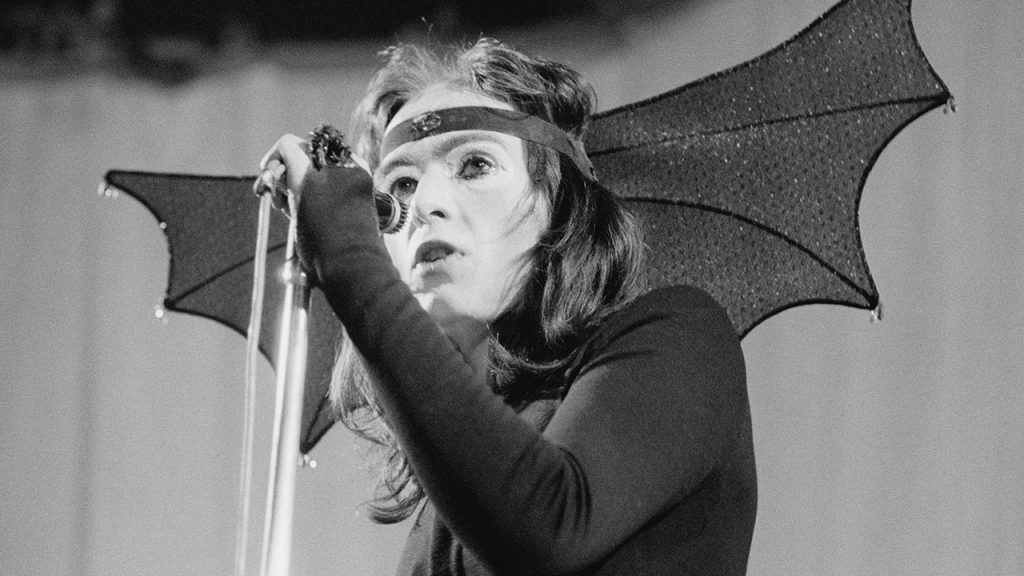
Much of the sense of drama came from Peter’s on-stage antics, inevitably all but lost in audio-only recordings. To the already established costume-changes — bat wings, fox’s head and the rest — he has now added the character of Britannia, who introduces Dancing with the Moonlit Knight. Its closing section evokes a pastoral feel; Steve’s lilting guitar combines with the soft tones of the Mellotron, Peter’s flute, the sound of church bells ringing and even the call of the cuckoo.
It serves to further accentuate a strain of eccentric Englishness that lies at the heart of early Genesis, with lyrical themes and references ranging from King Canute and Kew Gardens to fox hunting and evocations of quiet country villages. The lyrics — and Peter’s vocal delivery more generally — are also a source of much of the quietly eccentric humour. As well as bringing to life a rich cast of characters, he has developed a number of peculiar vocal mannerisms, enunciating particular words and phrases in a singular style — “has life again destroyed life?” during Watcher of the Skies, to take one example. Elsewhere, with the band still not quite ready to begin after Peter’s ‘Britannia’ monologue setting up Dancing with the Moonlit Knight, he utters a single word — “Interlude” — as if he were part of a Monty Python continuity sketch.
This quaint and quirky and distinctly English sense of the absurd is further explored in I Know What I Like and The Battle of Epping Forest, each with its cast of characters, whose eccentricities are played out on stage by Peter. The latter, in particular, features whimsical wordplay — “a robbing hood”, “a karmamechanic with overall charms” — and there’s an amusingly down-to-earth little interchange involving Phil on backing vocals: “What’s the trouble, then?” It’s easy to picture Peter shuffling across the stage as the lecherous old man in The Musical Box, as he wheezes lines like “Brush back your hair and let me feel your flesh”.
The climax of the show is the epic Supper’s Ready, perhaps the quintessential prog-rock piece. The closing section of the song, As Sure as Eggs Is Eggs, is soaring, magnificent, glorious. Yet, watching the official Shepperton Studios live footage, shot the previous October, the song’s visual power comes principally from the use of simple fluorescent effects. Indeed, watching the film as a whole, the viewer is struck by its amateurish feel: the set is extremely basic, the lighting is poor and Peter’s costumes look home-made. The dramatic energy comes from the music and, in particular, from Peter’s extraordinary on-stage performance. In this sense, too, the ‘Selling England’ tour represents a crossroads for Genesis.
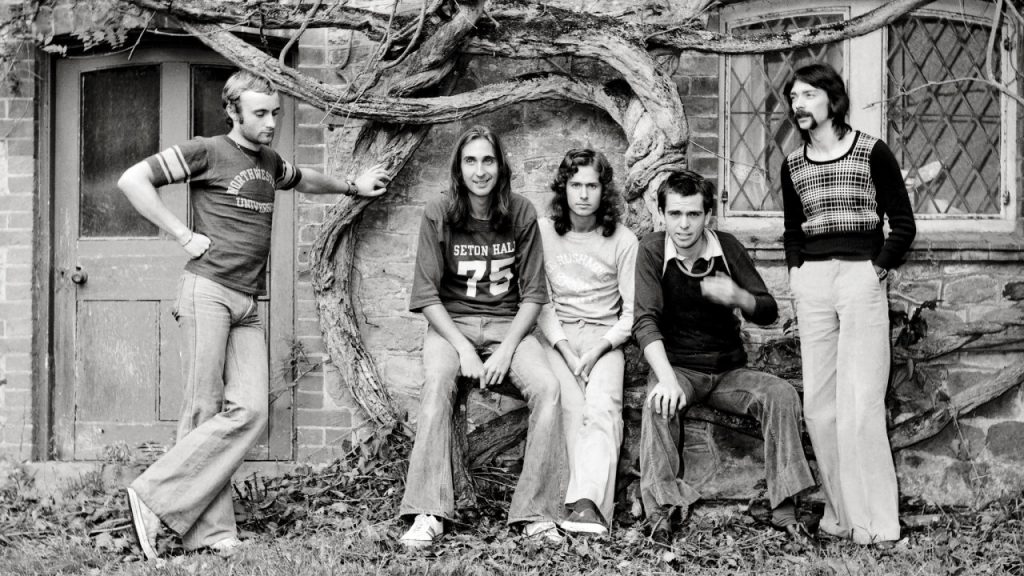
In a radical departure, the band played The Lamb Lies Down on Broadway in its entirety on the following tour, with only The Musical Box and sometimes Watcher of the Skies surviving as encores. Peter then left the band. This bootleg is valuable, therefore, in capturing the end of a Genesis era, with the band at their prog-rock peak. By 1976, they were back with Phil on vocals, a much more expensive and professional-looking stage show, much — though by no means all — of this classic material retired, and a warmer, less edgy sound.
Note: Officially released live recordings at the time of writing are the album Genesis Live and the Genesis Archive #1 box set recordings from the Rainbow (October 1973) and The Lamb Lies Down on Broadway. The official but as-yet-unreleased film of the band recorded at Shepperton Studios in late-October 1973 is widely available online, as is a longer version of the Genesis Live recordings, including more between-song audio and Supper’s Ready, and a longer version of the Rainbow show.

